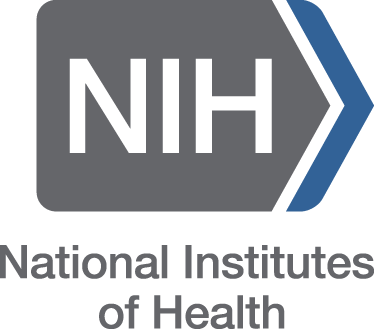Diversity in Medicine
Breadcrumb
Discover the Importance of Diversity in Medicine
Health depends on social factors, whether they are the condition of one’s neighborhood, the accessibility of good nutrition, or the education necessary to make informed choices about wellness.
These things are not impervious to racism. Racism can reduce the length of lives or stop them before they start. It is indeed a public health crisis. America’s long, frequently uncomfortable conversation about racism and social justice continues, with both new and familiar voices speaking up. Health is very much a subtopic that needs to be considered in that discourse.
To be committed to equity in health, one must address racism’s impact on it. Bring your book-discussion group into one of the central conversations impacting our nation as the NNLM Reading Club focuses on the topics of Black Maternal Health and Diversity in Medicine. We encourage you to use books selected for these topics to start a conversation or keep an existing one going. All voices are not always heard in such conversations. We urge you to listen, think critically about what you can do to alleviate the effect racism has on health equity, and act for social justice.
Discover MedlinePlus
Discover MedlinePlus, a service of the National Library of Medicine, the largest biomedical library in the world. Use Medlineplus.gov anywhere, anytime, on any device - for free - to discover high-quality health and wellness information that is reliable, easy to understand, and free of advertising, in both English and Spanish.
Use MedlinePlus to further your understanding and locate resources for Health Disparities.
Discover NIH
Persons of color bear a disproportionate share of health disparities. This is due to a number of factors including a lack of inclusion and the historical injustices of BIPOC groups in medical research. The National Institutes of Health want to change that.
 The National Institutes of Health (NIH), a part of the U.S. Department of Health and Human Services, is the nation’s medical research agency — making important discoveries that improve health and save lives. NIH is made up of 27 Institutes and Centers, each with a specific research agenda, often focusing on particular diseases or body systems.
The National Institutes of Health (NIH), a part of the U.S. Department of Health and Human Services, is the nation’s medical research agency — making important discoveries that improve health and save lives. NIH is made up of 27 Institutes and Centers, each with a specific research agenda, often focusing on particular diseases or body systems.
National Institute on Minority Health and Health Disparities (NIMHD) is the primary NIH organization for research on Health Disparities. A section on its website highlights recent research findings on minority health and health disparities by its grantees. Visit the Research Spotlights section for a quick glance at research that spans diverse topics affecting health disparity populations, such as maternal health and sexual and gender minority (SGM) mental health.
Discover More
Race, Racism, and Health is a collection of research and perspectives on the effects of race and racism on health in the United States compiled by the Robert Wood Johnson Foundation, the nation’s largest philanthropy dedicated solely to health. Since 1972, they have supported research and programs targeting some of America’s most pressing health issues.
Fact Sheet: Health Disparities by Race and Ethnicity by Sofia Carratala and Connor Maxwell, Center for American Progress, May 7, 2020
Race, Medicine, and Health in America is a Higher Education Module developed by the National Library of Medicine (NLM). It is designed to instruct intersecting narratives of race, environment, and health through the use of selected case studies: including lead poisoning, asthma, the Environmental Injustice Movement, the 1995 Chicago Heat Wave, and Hurricane Katrina. It is divided into six class modules with reading resources and discussion questions.
Featured Books




Terms of use: Network of the National Library of Medicine (NNLM) staff offer these health discussion resources for educational use. The materials included do not necessarily reflect the views or opinions of the author, publisher, or the sponsoring agencies of the National Library of Medicine (NLM) and the National Institutes of Health (NIH).
